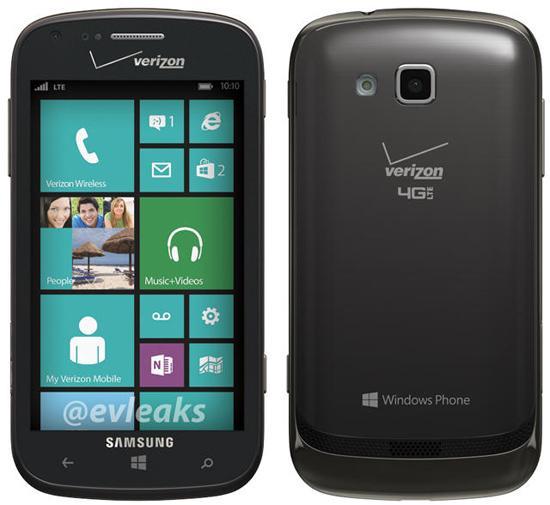
Apple’s iOS and Google’s Android operating systems are all the rage. They’ve taken the world by storm, and wiggled their way into the hearts of millions of consumers (literally) all over the globe. Apple, along with the army of Android manufacturers, have seen plenty of success in their time within the smartphone market, and that’s not going to slow down anytime soon. But, I’m sorry, if you aren’t excited about the other mobile platforms that are trying to get some of the limelight this year, I’m not sure we can be friends. And I’m not just talking about Microsoft’s Windows Phone or Research In Motion’s BlackBerry 10. No, I’m not looking at third place here. This time, I’m looking at fourth.
“But, Evan! We can’t talk about a fourth place, because that means the company has lost!” I can hear you all saying, in unison, and I’m here nodding my head well in advance. I know, I know, you’re right. Fourth place in the mobile market, here in the United States, means that your mobile platform isn’t doing very well at all. It’s just a truth that we’ve had to accept over the years, which is why both Microsoft and RIM are vying so hard to get into that third slot. They don’t just want it for extra exposure, they absolutely need it.
While fourth place is a grim place to be, I don’t necessarily think it means you’ve “lost,” not completely. Maybe I’m just an optimist, but could it not mean that the company has just that much footing left to make another push up the mountain? One more burst of energy reserved to give it one more real, concerted effort? Why does it have to be so black-and-white?
Then again, with fourth place being around two percent of market share (according to the IDC), I imagine it would be hard to be optimistic. Unless you’ve got the appropriate blinders equipped. Or enough money. Money’s always good.
Anyway, numbers. The IDC revealed that in the third quarter of 2012, Google’s Android had raked in a whopping 75% of total market share. Under that, there’s Apple’s iOS at 14.9 percent. In third we’ve got Research In Motion’s BlackBerry OS, with a 4.3% market share under their belt. And Symbian comes in fourth, with 2.3%.
(If you’re curious, Microsoft’s Windows Phone was parked at 2.0 percent.)
Now, one thing to remember is that that was the third quarter of 2012, so things could have changed by now. The numbers will probably do some shifting, and I would hope that Microsoft’s Windows Phone has climbed to fourth place by then, at least, but anything is possible.
But we want to look ahead, and into the future. We want to talk about after someone “wins” third place, definitively, and what comes next. There is one catch, though: Either Research In Motion or Microsoft have to be removed from the table altogether, in this hypothetical situation, with the other in third place. So, if we choose to go with Scenario 1, where RIM is the clear victor and keeps their third place title, we’re agreeing to move forward with Microsoft out of the mobile picture altogether. (They’ve decided to focus entirely on the living room, with their Xbox console and Surface tablet. Just go with it.)
Scenario 2 is the same deal, but with Microsoft’s Windows Phone the clear winner. So that means RIM has tapped out, and called it quits. (Who knows what they’re doing now. Maybe they’re using Android now.)
These are our two scenarios. From here, after you’ve chosen which of the above mobile operating systems you want to take the third spot, let’s look at the fourth position. Because even if the market share isn’t fantastic, there’s obviously handsets out there still running Symbian. For that matter, you can definitely find some Windows Phone-based handsets out there, even with Microsoft’s place on the rankings chart. So, the truth of it comes down to which mobile operating system that is currently vying for attention would have devices on the market, accessible, and would therefore get some attention. Not much, not at first, but we’re looking to change that.
That’s why I want to know from you, Dear Reader, which of the mobile operating systems you’d prefer to see take the fourth place, in hopes that it could climb the bar, make a name for itself against the competition, and eventually obtain a higher status on the charts. Because it has to start somewhere, and if that means that we have to choose one platform to disappear, so it can succeed, I want to know where you stand.
(Also, for the record, the only reason I’m not including Android and/or iOS in the sacrificial chamber, is because they’re obviously not going anywhere. People are still worried of RIM’s and Microsoft’s place in the mobile market, so their shaky positions make them easier targets. I know that plenty of you want to say iOS, and maybe some would even suggest Android, but not this time.)
So tell me, which OS would you sacrifice (RIM’s BlackBerry OS or Microsoft’s Windows Phone) to give Canonical’s Ubuntu Phone OS, or Sailfish OS? What about Open webOS? Firefox OS? There’s obviously not room for all of these options, which is why we have to sacrifice one to see another succeed. So tell me: Which would you sacrifice, to give room to another? Let me know!